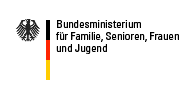Gender and equal treatment policy
Gender and equal treatment policy
Gender plays a considerable role in equal treatment policy. In historical retrospect, it can be seen that, in the German-speaking world, equal treatment policy spoke exclusively of “women”. Gender relations, that is “women and men”, then became the object of equal treatment policy measures. The term gender is now extending the field of vision again. Gender makes it clear that matters of social policy cannot be reduced to “women’s issues” and that more is involved than just perceiving differences between women and men. Rather, with the term gender as the starting point for equal treatment policy, diverse life situations of women and men are addressed, which are never just gender specific, but must always be seen in the context of nation or ethnicity, age, faith or secular belief, “capacity”, i.e. disability or ability, or with sexual orientation and lifestyles. The strategy Gender Mainstreaming is aimed at precisely this. It involves taking gender systematically into account at all levels and by all actors in the mainstream.
When gender is the fundament of equal treatment policy, new challenges are created. Policy becomes more differentiated, because structural differences and inequalities in the life situations of different women and men are identified and conclusions for action oriented to gender equality have to be derived from them, without consolidating gender stereotypes. This is a matter of enabling, not laying down rules. In order to respect changes within the context of individual decisions, it is necessary to allow people to live their lives the way they want to, i.e. as independently as possible from their classification as girl or boy. This means repeatedly departing from the notion that there are “natural roles” for men or for women. It means seeing to it in social or legal terms that the gender of a person is not allowed to be a decisive shaping influence on her or his life. But finally it is a matter of reacting appropriately to the needs of people. It is precisely this that equal treatment policy with reference to “gender” can contribute.
When gender is the fundament of equal treatment policy, new challenges are created. Policy becomes more differentiated, because structural differences and inequalities in the life situations of different women and men are identified and conclusions for action oriented to gender equality have to be derived from them, without consolidating gender stereotypes. This is a matter of enabling, not laying down rules. In order to respect changes within the context of individual decisions, it is necessary to allow people to live their lives the way they want to, i.e. as independently as possible from their classification as girl or boy. This means repeatedly departing from the notion that there are “natural roles” for men or for women. It means seeing to it in social or legal terms that the gender of a person is not allowed to be a decisive shaping influence on her or his life. But finally it is a matter of reacting appropriately to the needs of people. It is precisely this that equal treatment policy with reference to “gender” can contribute.
Further reading
Baer, Susanne/ Kletzing, Uta: Strategien der Gleichstellungspolitik – Zur Debatte um Gender Mainstreaming, in: Zeitschrift für Frauenforschung & Geschlechterstudien, 22, 4/2004, S. 3-18.
erstellt von Administrator
—
zuletzt verändert:
02.01.2010 20:08






